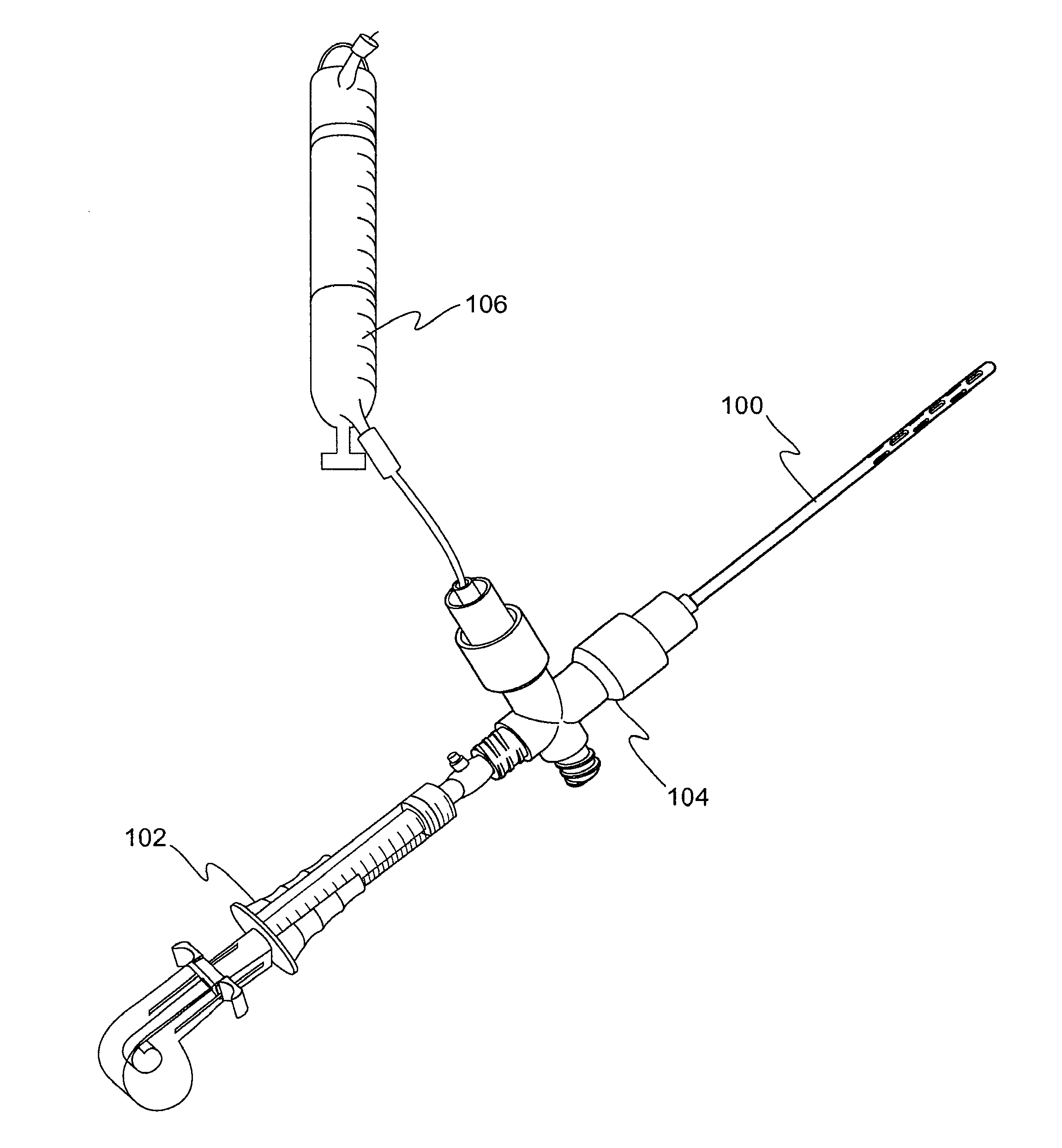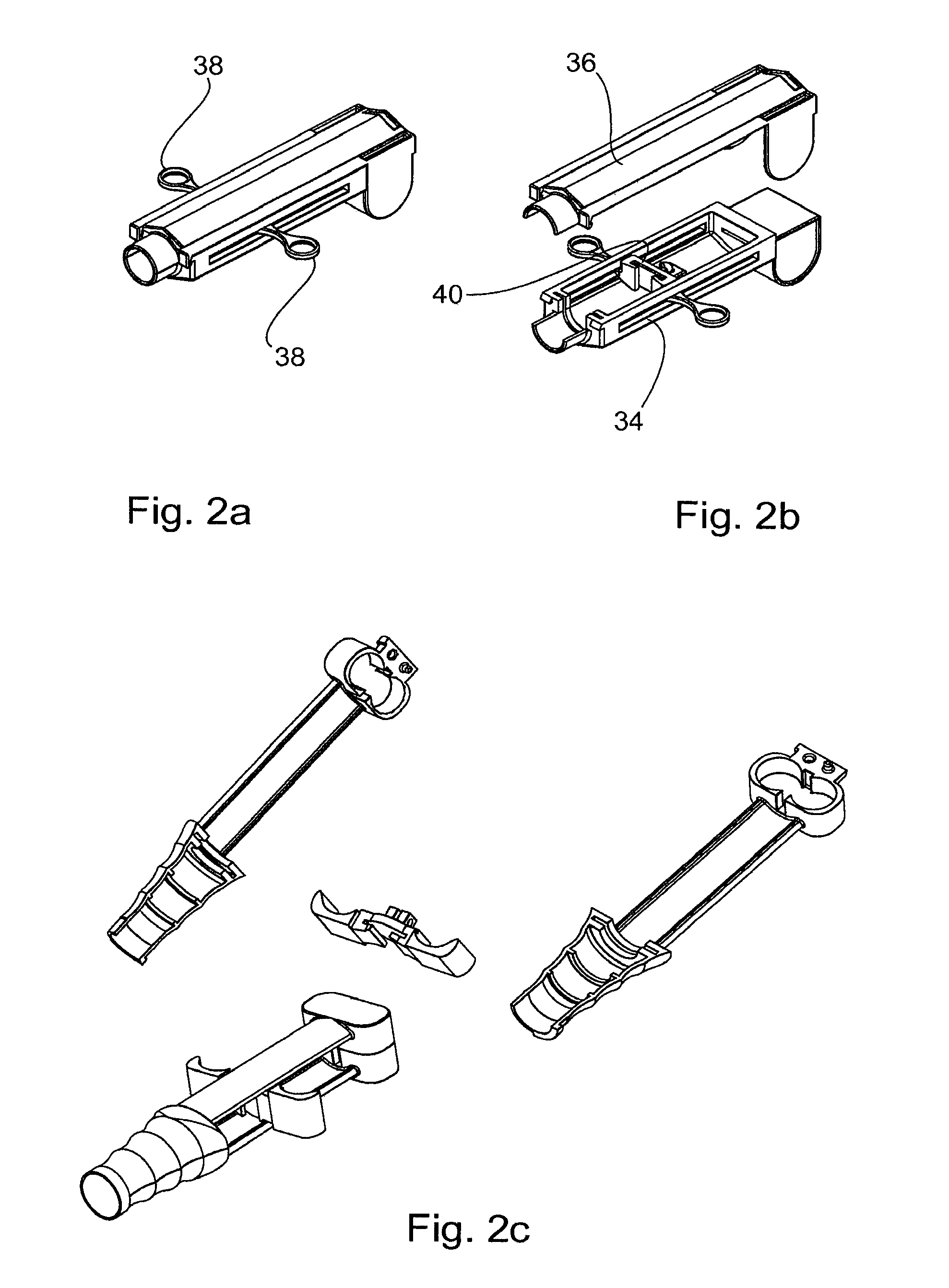Constant Pressure Syringe For Surgical Use
a constant pressure syringe and syringe technology, applied in the field of constant pressure syringe for surgical use, can solve the problems of impracticality and unreliability, excessive pressure, and arduous process, and achieve the effect of reducing the efficiency of liposuction, reducing excess body contour, and improving the survival of fat grafts
- Summary
- Abstract
- Description
- Claims
- Application Information
AI Technical Summary
Benefits of technology
Problems solved by technology
Method used
Image
Examples
Embodiment Construction
[0018]As has become known in the art, grafted fat globules have to first survive by diffusion and what is called plasmatic imbibition until they get revascularized from the recipient bed. Larger globules that have a lower surface to volume ratio cannot get enough nutrients to survive and therefore die off before getting revascularized. This improved understanding of the physiology of graft survival led to the use of smaller bore cannulas with smaller openings that harvest smaller globules of fat. While generally speaking the smaller the better, very small is impractical in terms of harvesting efficiency, especially when large volumes are required for the particular procedure. It is well recognized today that the ideal harvesting cannulas should have diameters between 2-3 mm and harvesting slits (hole openings) between 0.5 and 3 mm.
[0019]The most commonly used and commercially available cannulas for liposuction are either blunt ended with a single side hole, three side holes (Mercede...
PUM
 Login to View More
Login to View More Abstract
Description
Claims
Application Information
 Login to View More
Login to View More - R&D
- Intellectual Property
- Life Sciences
- Materials
- Tech Scout
- Unparalleled Data Quality
- Higher Quality Content
- 60% Fewer Hallucinations
Browse by: Latest US Patents, China's latest patents, Technical Efficacy Thesaurus, Application Domain, Technology Topic, Popular Technical Reports.
© 2025 PatSnap. All rights reserved.Legal|Privacy policy|Modern Slavery Act Transparency Statement|Sitemap|About US| Contact US: help@patsnap.com



